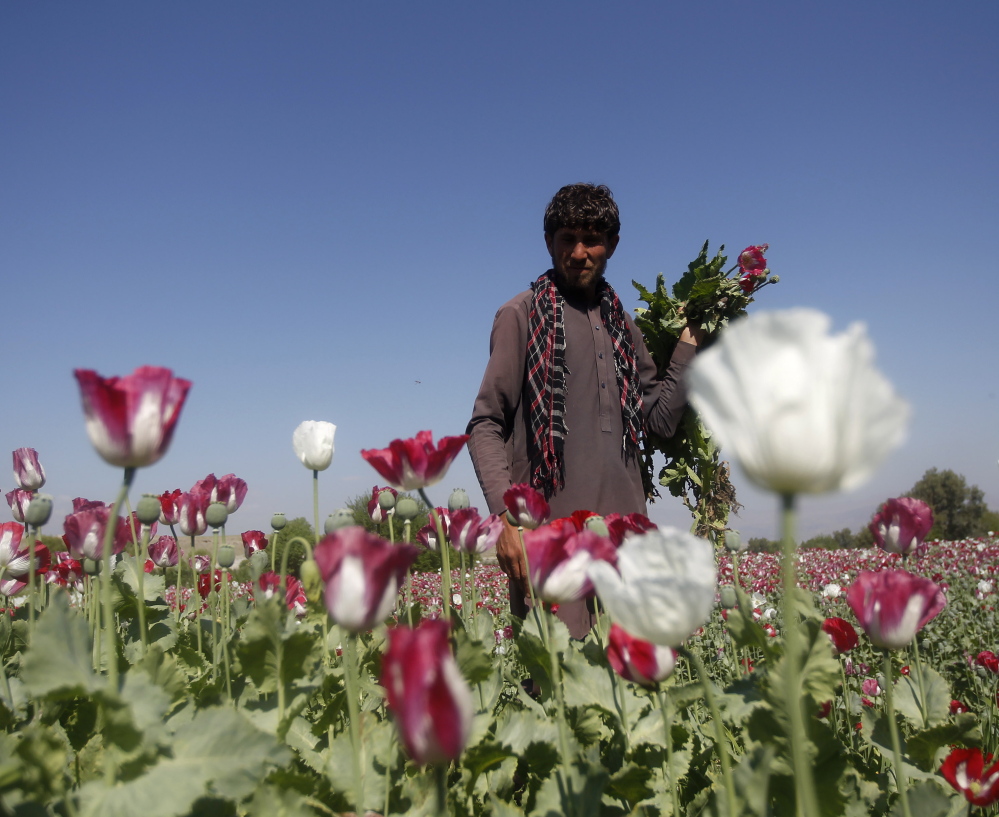WASHINGTON — Afghans are growing more opium poppies than ever before and it’s threatening to wipe out gains made to help the impoverished country improve health, education and governance, the U.S. watchdog for spending in Afghanistan said Tuesday.
John Sopko, the special inspector general for Afghan reconstruction, told a House subcommittee that the narcotics trade is tainting the financial sector, stoking corruption, helping Taiban insurgents and criminal networks.
He said there already are signs that elements within the Afghan security forces are making arrangements with rural populations to permit opium poppy growing as a way to build local patronage networks.
“The expanding cultivation and trafficking of drugs is one of the most significant factors putting the entire U.S. and international donor investment in the reconstruction of Afghanistan at risk,” he said in prepared remarks.
“Meanwhile, the United States and other donor nations assisting Afghanistan have, by and large, made counter-narcotics programming a lower strategic priority at the same time that the 2014 drawdown of U.S. and coalition forces increases the security risks in the country.”
The U.N. Office of Drugs and Crime said Afghanistan produced nearly $3 billion in opium plus its heroin and morphine derivatives last year – up over the $2 billion produced the year before.
From 2002 through March of this year, the U.S. had provided more than $7 billion for counter-narcotics efforts and agriculture stabilization programs, an important component of the U.S. strategy to curb opium poppy production.
That’s jeopardizing U.S. reconstruction programs at a time when the U.S. military is withdrawing troops, which is making it more difficult for aid workers to visit rebuilding sites and oversee programs.
“On my trips to Afghanistan in 2013 and earlier this year, no one at the (U.S.) Embassy could convincingly explain to me how the U.S. government counter-narcotics efforts are making a meaningful impact on the narcotics trade or how they will have a significant impact after” the U.S.-led combat mission ends in December,” Sopko said.
Sopko said his team plans to conduct a comprehensive audit to assess how U.S. taxpayer money has been spent on programs to counter narcotics trafficking and whether it’s been effective.
Send questions/comments to the editors.



Success. Please wait for the page to reload. If the page does not reload within 5 seconds, please refresh the page.
Enter your email and password to access comments.
Hi, to comment on stories you must . This profile is in addition to your subscription and website login.
Already have a commenting profile? .
Invalid username/password.
Please check your email to confirm and complete your registration.
Only subscribers are eligible to post comments. Please subscribe or login first for digital access. Here’s why.
Use the form below to reset your password. When you've submitted your account email, we will send an email with a reset code.